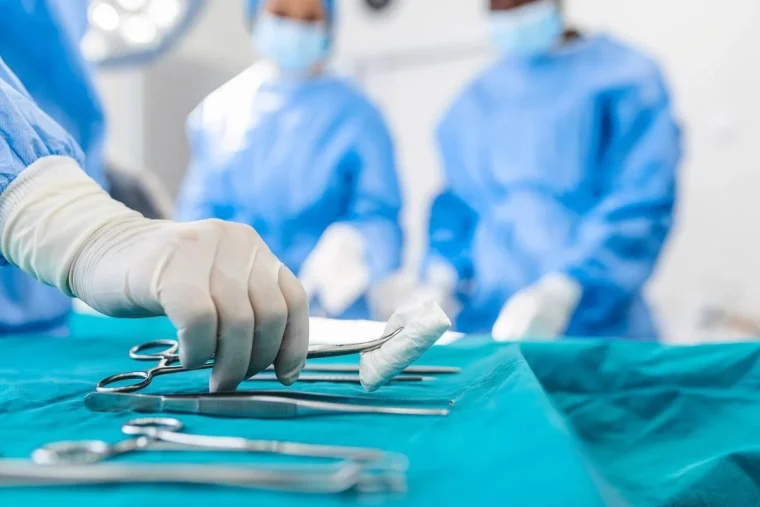Penile revision is a surgical procedure to improve the functionality of the male genital organ. It is often used if the patient previously had an operation to lengthen the organ, and now that result needs to be maintained for as long as possible. In fact, fat tissue or fillers are injected in some way to improve the placement of the organ and give it contour and shape.
However, penile revision is a procedure that includes several interventions, which can be the removal of excess tissue, the removal of implants, the maintenance of the results of the lengthening procedure, and the reduction of surgical scars.
We are sure that you have many questions, so first we will advise you to look at this site, and then we will try to answer some of the most frequently asked questions.
That way you would get all the answers you need, or you could go to the clinic where they can help you.
1. Which patients are candidates for penile implants?
Implants are ideal for patients with erectile dysfunction in whom standard therapy does not help. The doctor assesses whether the patient is in good health for surgery. The examination is mandatory, especially when anesthesia is to be administered. Preoperative treatment is also important because then you educate yourself on exactly what is going to happen and what the potential post-operative challenges are.
2. Can the penile implant be removed?

There are certain situations in which corrective surgery or implants may be removed. This happens if the first operation is not successful or if there is some post-operative infection that prevents recovery.
This procedure is also known as penile revision surgery. The need for penile revision arose after many patients had poor results due to unprofessionally performed operations or infection or poor wound healing occurred.
3. Is penile revision necessary even if you have no visible problems?
Implants have a long shelf life, but not forever. That is why you must always go for regular check-ups. Sometimes surgery with implants is enough to solve the problem once, but sometimes they have to be supplemented, especially if body fat was used during the process.
Well, we can say that there is no single and correct answer to this question. In general, it all depends on how you recover and whether you have any general problems after surgery.
4. How long do I need to recover?

Recovery usually takes 7 to 10 days, but may be shorter or longer, depending on your general health. The most common question is whether you can have intercourse immediately after recovery. But we would recommend that you wait about a month to try and see if it all goes well.
Many times the process of full recovery takes up to two months because the body needs time to get used to the new condition.
5. Is there a risk of penile revision?
There are risks like any surgery. That is why it is really important to choose a professional clinic, where you can be sure that the medical team will take good care of you and intervene if necessary.
Make that choice, even if it means paying more for the procedure.
6. Can the body reject the implants?
Rejection of implants is possible in all interventions that involve such a thing. Some people have such a strong immune response that even the simplest ear piercing for earrings can be a health risk for them.
We believe that you know your body well and that you can already guess how you would react to implants in your genital organ. That is why it is necessary to be in coordination with your doctor and to pay enough attention to the pre-operative process.

If the body rejects the implants, penile revision is exactly the intervention that is needed to save you time.
7. Can penile revision affect erectile dysfunction?
Most often, elongation and revision surgeries are done to improve the condition of erectile dysfunction. The risk of postoperative ED exists, but such cases are a real rarity. If you’re afraid, it’s a good idea to talk to your doctor about it before you even enter the operating room. They will explain to you all the risks and their past experience with the side effects. This will make it easier for you to decide what to do.
8. What are the most common indications for penile revision?
According to publicly available data, there are several reasons for penile revision after lengthening procedures or implant placement. The most common reason is a restoration of implants or their removal. Next is implant failure, i.e. an unsuccessful result of the initial intervention.
Chronic postoperative pain is a cause for concern and may result in penile revision. Among other indications are technical failures, displacements, or post-operative infections.
Pain and infections can occur immediately after the implants are placed. The distortions and wear and tear are checked every 4-5 years, to make sure that everything is fine with you and your “masculinity”.
9. Can penile revision be done during gender change?

It’s absolutely necessary to have regular medical check-ups if you’ve had gender reassignment, no matter what your transition was. Many birth women who transition to the male gender and want to have all the characteristics of a man must go for regular check-ups to prevent infections and dislocations. Even men who have removed their organs, in order to be fully female, must monitor their condition according to their needs.
Conclusion
From all these questions and their answers, we can conclude that regular examinations and controls are crucial to maintaining a long-lasting result from the initial surgery. Of course, never ignore complications, even if it’s just mild pain. When the surgery is successful, your masculinity should function as before, without any pain or discomfort.
If something like that happens, you should call your doctor immediately. Sometimes the need for penile revision is really urgent and if you don’t react in time, you lose precious moments that can complicate your health.
